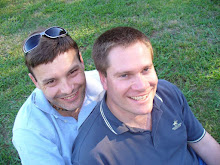Much like global warming, extreme fundamental Islam is a prominent news topic in London. The debate provokes intense emotion from both sides. In fact, I’ve vacillated for months about whether to write a post on this topic. I worry that an extremist could take offense to my observations and subsequently harm Garry and me. It’s a tragedy that fear plays such a large part in the current multicultural debate.
This fear is fueled by some very sobering news stories. We all remember the July 7 suicide bombings in which 56 commuters were killed by extremist Islamic youths. The unsuccessful tube bombings of July 21, 2005, have also been back in the news this month as the accused are brought to trial. Since January 15, Woolwich Crown Court has been hearing evidence that six men conspired to murder by exploding homemade suicide bombs.
Coverage of the trial has been intense. We’ve seen footage from inside the tube carriages moments after one of the alleged bombers triggered his detonator. We also heard detailed eyewitness accounts of this incident. Last night’s news bulletins were screening video footage showing two of the accused being arrested by armed police. It’s both compelling and disturbing television.
The Islamic religion has a far higher profile in London than anything I’ve experienced before. For example, every day on the way to work I pass many women wearing headscarves and some in full-length, black shapeless burqas. The sight of these women with nothing more than a narrow eye slit showing is very unnerving. Part of my discomfort is simply a lack of familiarity. I’m sure if I lived in Saudi Arabia I’d find their presence perfectly normal. However, until now, I've never seen women in full-veil burqas outside of the Middle East and North Africa.
I realize that my discomfort stems in part from my own cultural heritage. Covering the face is a symbol of deception in Western culture. For example, outlaws wore scarves, not law-abiding citizens. Conversely, surgeons wear masks, but their white or light green colour is associated with cleanliness, unlike the black burqa veil. My culture also associates Islamic dress with the subjugation of women.
However, I appreciate that this dress code has an opposite connotation for many followers of Islam. For some, it's considered an act of humility or modesty. For others, it's a symbol of respect for their faith. Finally, it's often considered a practice that protects women against harm. An immoral man is less tempted when his eyes have little to feast upon. It's clear that cultural norms distort the debate.
The fact that educated and well-traveled people like me are uncomfortable whenever women in burqas walk by also helps explain why the multicultural debate provokes such intense emotion. Of course, the debate isn’t helped by CCTV images of one July 21 bomb suspect fleeing London dressed in a burqa. Such drama only fuels mistrust for women dressed in Islamic clothing and increases suspicion on both sides. The July 21 bombing trial is not just a news story about justice, it's also a story about fear – on both sides of the current debate.
A typical shopping day in Egypt






No comments:
Post a Comment